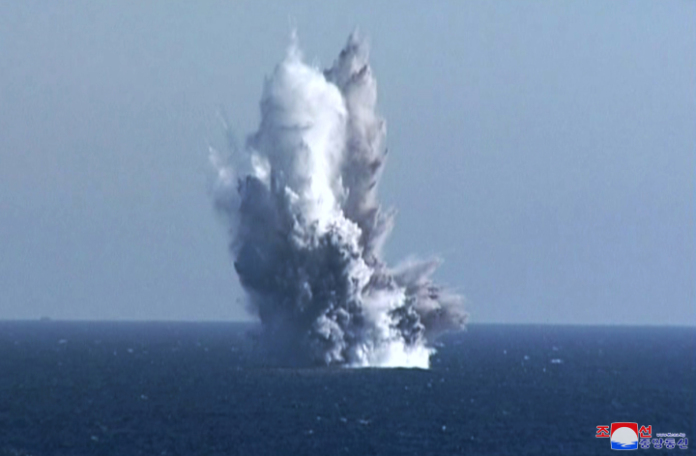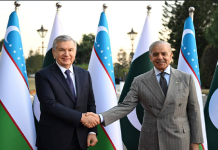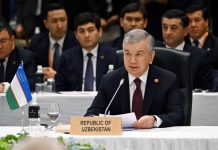It is so worthwhile to put on paper something that was seen and experienced during the enforcement of the country’s foreign policy from the moment of gaining Independence. From this point of view, discussing some of our diplomatic actions that we took to combat the threats of nuclear weapons that are weapons of mass destruction and assessing the results are the basic aspects of this article.
It is not enough for a diplomat to provide just a clear description of facts, it is also important to analyze the political process in depth and to present the authorities’ actions tactfully. Words play the same role for a diplomat as weapons do for a soldier. It is a legitimate fact that along with changes in the world the doctrine of international relations undergoes certain changes, too. For instance,while in Ancient Greece and in the Kazakh steppe is was the word of mouth that was essential for diplomats, in modern times, the written word has been becoming increasingly important together with the spoken one. The era has arrived when the word is perceived as the main tool of a diplomat.
Whereas this year is marked by the 30th anniversary of the Ministry of Foreign Affairs of Kazakhstan, I would designate as the greatest achievement of the Central Asian countries over the years of their independence the fact that they succeeded in transforming the region into a Nuclear-Weapon-Free Zone (NWFZ).
The international community definitely did not expect such foresight, unity and dedication from the newly-independent Central Asian countries. I believe that the historical assessment of such diplomatic victory won by these countries is yet to come.
On October 10, 2017, the Kazakhstan delegation headed by Kairat Abdrakhmanov, Minister of Foreign Affairs of the Republic of Kazakhstan,participated in the Summit of Central Asian Foreign Ministers. Ambassador E. Utembaev entrusted me with full responsibility for the proper organization of all events held in Samarkand. As part of the summit, an international conference was held that was attended by more than 80 foreign political scientists, experts, politicians, analysts. Having passed all the tests, we rose to the challenge and were commended by the Minister.
Meanwhile, at the request by Ambassador E. Utembaev, I got a chance to take part in the international conference named “Central Asia: One Past and a Common Future, Cooperation for Sustainable Development and Mutual Prosperity” to listen to the speakers.
I got particularly interested in the report by the political scientist from South Korea. He noted that shortly before the collapse of the former USSR there were mixed views on the future of the Central Asian countries and predictions that “with the collapse of the USSR, due to all kinds of strong conflicts, the five Central Asian countries will experience disturbances and chaos that, in their turn, might lead to a situation similar to what is going on in today’s Iraq or Syria and result in the exodus of millions of refugees.” Then he emphasized, “However, the situation developed not as we thought it would, and our predictions have not been confirmed. But what do we see in a quarter of a century? The five countries of Central Asia, especially Kazakhstan and Uzbekistan, received global recognition thanks to dynamic development of their economies and managed to find common ground to take the bravest actions aimed at sustainable development of the region.
Together they have made much significant progress. However, all that pales beside the success of turning the Central Asian region into a Nuclear-Weapon-Free Zone.
So far, this achievement by the Central Asian states has not been properly appreciated by the global community. I hope that in the future experts will study your experience and will be able to give it the appropriate positive assessment. In some parts of the world there is a fair number of countries that over the many years of hard work have not been able to achieve a positive result to make their region free from nuclear weapons. Take our region of Northeast Asia – it is like a powder keg full of explosive: one strike of a match is enough for it to explode in an instant.
In the event of such explosion, there is even no mechanism to stop it. How did you manage to reach a common and mutually acceptable positive decision so quickly?Your good deed is exemplary for us. Therefore we would like you to share your positive experience with us,” said the Korean political analyst in conclusion.
Indeed, in 1992, the DPRK and South Korea adopted the Joint Declaration on the Denuclearization of the Korean Peninsula. Unfortunately, due to dangerous political tensions that emerged the agreement did not come into force. In addition to that, when in February 2004 Pyongyang made an official statement on withdrawing from the Treaty on the Non-Proliferation of Nuclear Weapons (NPT),that raised doubts about implementing the initiative in the near future. So, the expert evaluation of the Korean political analyst who gave a speech in Samarkand made a great impression on me, opening my eyes to some things that I had been musing about for a long time.
On the path to containing proliferation of nuclear weapons, the thoughts that appeared and remained in the abyss of my subconscious when I was yet a postgraduate made me immerse into deep contemplation. First of all, he reminded me about the historic event where I was directly involved in making a political decision aimed at freeing the region from nuclear weapons. Following the adage,“Great deeds are done in silence”, it was particularly pleasant to hear independent policy experts from another region expressing their opinion that our efforts to create history would not go unnoticed and would ultimately benefit humanity.(To Be Continued).
Mursal-Nabi Tuyakbaev,Honored Diplomatic Service Officer of the Republic of Kazakhstan,Associate Member of the National Academy of Natural Sciences of Kazakhstan.







